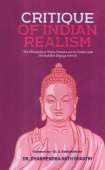Pratitya, Pratītya: 5 definitions
Introduction:
Pratitya means something in Hinduism, Sanskrit. If you want to know the exact meaning, history, etymology or English translation of this term then check out the descriptions on this page. Add your comment or reference to a book if you want to contribute to this summary article.
Languages of India and abroad
Sanskrit dictionary
Source: Cologne Digital Sanskrit Dictionaries: Edgerton Buddhist Hybrid Sanskrit DictionaryPratītya (प्रतीत्य).—ger., also used virtually as postpos. (derived from Sanskrit prati-i-; = Pali paṭicca), dependent on, based on: daśa bhūmayo buddhajñānaṃ pratītya prajñāyante Daśabhūmikasūtra 95.27; hetuṃ pratītya bhavaśūnya śruṇitva dharmā (or °māṃ) Lalitavistara 117.1 (verse; so read), hearing that the states- of-being are based on a cause and void of (real) existence; yatha muñja pratītya valvajaṃ rajju…vartitā Lalitavistara 176.7, cited Śikṣāsamuccaya 238.5 (verse; so read), as, on the basis of muñja or valvaja (grass), a rope is produced; cakṣuś ca pratītya rūpataḥ cakṣuvijñānaṃ Lalitavistara 176.17, cited Śikṣāsamuccaya 239.5 (verse); yatha tantri pratītya dāru ca…Lalitavistara 177.13, cited Śikṣāsamuccaya 241.1 (verse); hetuṃ pratītya imi saṃbhuta (= °bhūtāḥ) sarvadharmā Lalitavistara 419.9 (verse); skandhā (acc. pl.) pratītya samudeti hi duḥkham evaṃ Lalitavistara 419.13 (verse); upadhi (mss.) pratītya duḥkhasya saṃbhavo Mahāvastu ii.418.10; used abso- lutely, without object, in dependence (on something else): pratītya sarve imi bhāva utthitāḥ Saddharmapuṇḍarīka 191.12 (verse); pratītya dharmaṃ (read °mā?) pravicito (v.l. °tā, so read?) bo- dhisattvaḥ…Mahāvastu ii.346.3 (verse; but construction is not clear); dharmā (n. pl.) pratītya utpadyante (or °ti; so with mss.) Mahāvastu iii.66.6, 12; also in composition with a following or prec. word, as in pratītya-samutpāda, q.v., but in this and in some of the following pratītya could be under- stood as a separate word, as in the prec. cases, in de- pendence: hetu-pratītya-kuśalo Lalitavistara 125.2 (verse), wise in re- gard to (things that are) dependent on causes; anyonya- pratītya-hetutaḥ Lalitavistara 176.6 (verse); sāmagri-pratītyataś ca sā [Page374-a+ 71] vāca-mana-buddhi-vaśena niścarī Lalitavistara 177.9, cited Śikṣāsamuccaya 240.9 (verse), or perhaps understand sāmagri pratītya (a)taś ca°, depending on the totality, and hence by force of voice, mind, and consciousness, this (utterance) has gone forth; dharma (acc. pl.) pratītya-samutthita buddhvā Lalitavistara 308.13 (verse); pratītya-jātā (dharmā ime) Lalitavistara 340.3 (verse); pratītya-samudāgataṃ jagac chūnyaṃ Lalitavistara 375.11 (verse); pratītya-samutpannāṃ dharmām Mahāvastu iii.61.3; pratītyāva- tārobhayāntadṛṣṭisamatikramaṇa-cakraṃ Lalitavistara 423.2, the wheel that transcends the false view of two alternatives (see next passage) by penetration of (what exists) by depending (on other things, Tibetan rten ba la ḥjug śiṅ…); ubhayānta means, not the extreme types of behavior, violent asceticism and sensuality (see pratipad), but the notion of contrast between oneself and others, as is shown by Gaṇḍavyūha 469.9 ātmaparasaṃjñā-dṛṣṭi-vigatena pratītyāvatārajñānena; so also pratītyāvatārāviruddhaṃ (so read with 1 ms. for Lefm. °ddha-; Tib…mi ḥgal ba, and in a new, separate, phrase zhi ba = śāntaṃ) śāntaṃ Lalitavistara 423.11, unhindered thru penetration of… (as above), and calm. Cf. next.
Source: Cologne Digital Sanskrit Dictionaries: Monier-Williams Sanskrit-English Dictionary1) Pratītya (प्रतीत्य):—[from pratī] n. confirmation, experiment, [Ṛg-veda vii, 68, 6]
2) [v.s. ...] comfort, consolation, [ib. iv, 5,14] (others mfn. to be acknowledged or recognized)
Source: DDSA: Paia-sadda-mahannavo; a comprehensive Prakrit Hindi dictionary (S)Pratītya (प्रतीत्य) in the Sanskrit language is related to the Prakrit word: Paḍucca.
[Sanskrit to German]
Sanskrit, also spelled संस्कृतम् (saṃskṛtam), is an ancient language of India commonly seen as the grandmother of the Indo-European language family (even English!). Closely allied with Prakrit and Pali, Sanskrit is more exhaustive in both grammar and terms and has the most extensive collection of literature in the world, greatly surpassing its sister-languages Greek and Latin.
See also (Relevant definitions)
Starts with: Pratityasamutpada, Pratityasamutpadanaya, Pratityasasutpada, Pratityata, Pratityotpada.
Full-text (+9): Pratityasamutpada, Praticya, Paducca, Upadhani, Samskara, Pratityata, Paticca-samuppanna, Ajavamjavibhava, Samutpada, Paticca, Niyatana, Vedayita, Repeated birth, Idampratyayata, Shrivatsa, Kushalakarma, Wholesome Conduct, Hetupratyaya, Anupalambhashunyata, Hinayana.
Relevant text
Search found 15 books and stories containing Pratitya, Pratītya; (plurals include: Pratityas, Pratītyas). You can also click to the full overview containing English textual excerpts. Below are direct links for the most relevant articles:
Rig Veda (translation and commentary) (by H. H. Wilson)
Rig Veda 7.68.6 < [Sukta 68]
Mahayana Buddhism and Early Advaita Vedanta (Study) (by Asokan N.)
Chapter 5.7 - Madhyamika Interpretation of Dependent Origination
Chapter 4.1 - Reality in Madhyamika (a): Void the Absolute
The Tattvasangraha [with commentary] (by Ganganatha Jha)
Verse 1965-1966 < [Chapter 23 - External World]
Stupas in Orissa (Study) (by Meenakshi Chauley)
During the Gupta period < [Chapter 2]
Maha Prajnaparamita Sastra (by Gelongma Karma Migme Chödrön)
Sarvāstivādin-Sautrāntika Debate on Time < [Part 1 - Mahāyānist list of the eighteen special attributes of the Buddha]
Conditions note (1): The system in the canonical sūtras < [Part 1 - Understanding the Conditions (pratyaya)]
Appendix 2 - The story of Hastaka Śākyaputra < [Chapter LII - Elimination of the Triple Poison]
The Meaning Of Life (by HH the Dalai Lama)
Related products
